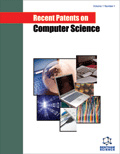Abstract
In a recent development, Natural Language Processing has gained
tremendous momentum and is one of the important areas of data science. It is a subset
of Artificial Intelligence that translates the human understanding of language into a
machine-understandable form and supports to accomplish repetitive jobs such as
summarization, machine translation, etc. The use of NLP has multiplied since the
development of AI bots like Alexa, Cortana, Siri, and Google Assistant. Along with
numerous advancements from major corporations like Google, NLP has seen
improvements in accuracy, speed, and even strategies that are used by computer
scientists to handle challenging issues. Here are some of the important trends projected
to dominate in the coming years for Natural Language Processing. With the growing
need and demand for Artificial Intelligence, Machine Learning is projected to play a
vibrant role, particularly in text analytics. With the help of supervised and unsupervised
machine learning, a more thorough analysis can be done in the near future. The use of
social media can be seen as one of the major platforms for all companies to make their
decisions and can take a very significant role in it. With the help of many NLP tools,
the company can identify customer reviews, feedback, and responses on social media.
NLP is also anticipated to increase in popularity in fields that require the ability to
comprehend user intent, such as semantic search and intelligent chatbots. The
abundance of natural language technologies is anticipated to survive to shape the
communication capability of cognitive computing along with the expanding application
of deep learning and machine learning.






















